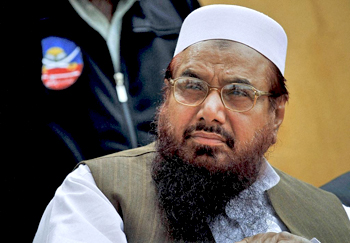Washington, May 30: President Donald Trump said Friday he would strip several of Hong Kong's special privileges with the United States and bar some Chinese students from US universities in anger over Beijing's bid to exert control in the financial hub.
In a day of concerted action, the United States and Britain also raised alarm at the UN Security Council over a controversial new security law for Hong Kong, angering Beijing which said the issue had no place at the world body.
In a White House appearance that Trump had teased for a day, the US president attacked China over its treatment of the former British colony, saying it was "diminishing the city's longstanding and proud status."
"This is a tragedy for the people of Hong Kong, the people of China and indeed the people of the world," Trump said.
Trump also said he was terminating the US relationship with the World Health Organization, which he has accused of pro-China bias in its management of the coronavirus crisis.
But Trump was light on specifics and notably avoided personal criticism of President Xi Jinping, with whom he has boasted of having a friendship even as the two powers feud over a rising range of issues.
"I am directing my administration to begin the process of eliminating policy that gives Hong Kong different and special treatment," Trump said.
"This will affect the full range of agreements, from our extradition treaty to our export controls on dual-use technologies and more, with few exceptions," he said.
Secretary of State Mike Pompeo on Wednesday informed Congress that the Trump administration would no longer consider Hong Kong to be separate under US law, but it was up to Trump to spell out the consequences.
China this week pressed ahead on a law that would ban subversion and other perceived offenses against its rule in Hong Kong, which was rocked by months of massive pro-democracy protests last year.
US restricts students
In one move that could have long-reaching consequences, Trump issued an order to ban graduate students from US universities who are connected to China's military.
"For years, the government of China has conducted elicit espionage to steal our industrial secrets, of which there are many," Trump said.
Hawkish Republicans have been clamoring to kick out Chinese students enrolled in sensitive fields. The FBI in February said it was investigating 1,000 cases of Chinese economic espionage and technological theft.
But any move to deter students is unwelcome for US universities, which rely increasingly on tuition from foreigners and have already been hit hard by the COVID-19 shutdown.
China has been the top source of foreign students to the United States for the past decade with nearly 370,000 Chinese at US universities, although Trump's order will not directly affect undergraduates.
Critics say Trump has been eager to fan outrage about China to deflect attention from his own handling of the coronavirus pandemic that has killed more than 100,000 people in the United States, the highest number of deaths of any country.
Chuck Schumer, the top Democrat in the Senate, called Trump's announcement "just pathetic."
Eliot Engel, a Democrat who heads the House Foreign Affairs Committee, noted that Trump treaded lightly on Hong Kong during last year's protests as he sought a trade deal with Xi.
"Now, the president wants to shift the blame for his failures onto China, so he's doing the right thing for the wrong reason," Engel said.
Trump's order could also trigger retaliation. China in March expelled US journalists after the Trump administration tightened visa rules for staff at Chinese state media.
Clash at UN
The United States and Britain earlier in the day urged China to reconsider the Hong Kong law during talks at the UN Security Council, where China wields a veto -- making any formal session, let alone action against Beijing, impossible.
The Western allies raised Hong Kong in an informal, closed-door videoconference where China cannot block the agenda.
They said China was violating an international commitment as the 1984 handover agreement with Britain, in which Beijing promised to maintain the financial hub's separate system until at least 2047, was registered with the United Nations.
"The United States is resolute, and calls upon all UN members states to join us in demanding that the PRC immediately reverse course and honor its international legal commitments to this institution and to the Hong Kong people," said US Ambassador Kelly Craft, referring to the People's Republic of China.
China demanded that the United States and Britain "immediately stop interfering in Hong Kong affairs," saying the law did not fall under the Security Council's mandate.
"Any attempt to use Hong Kong to interfere in China's internal matters is doomed to fail," warned a statement from China's UN mission.
"There was no consensus, no formal discussion in the Security Council, and the US and the UK's move came to nothing," it said.
 Saeed and the four men added to the fourth schedule of the ATA were also placed under house arrest on January 30 in Lahore amid an angry uproar from his party and political allies. The five men were identified by the Interior Ministry as "active members of the Jamaat-ud-Dawa (JuD) and Falah-i- Insaniyat (FIF)," the report said. The ministry directed the Counter Terrorism Department to "move and take necessary action" against them.
Saeed and the four men added to the fourth schedule of the ATA were also placed under house arrest on January 30 in Lahore amid an angry uproar from his party and political allies. The five men were identified by the Interior Ministry as "active members of the Jamaat-ud-Dawa (JuD) and Falah-i- Insaniyat (FIF)," the report said. The ministry directed the Counter Terrorism Department to "move and take necessary action" against them.




Comments
Add new comment